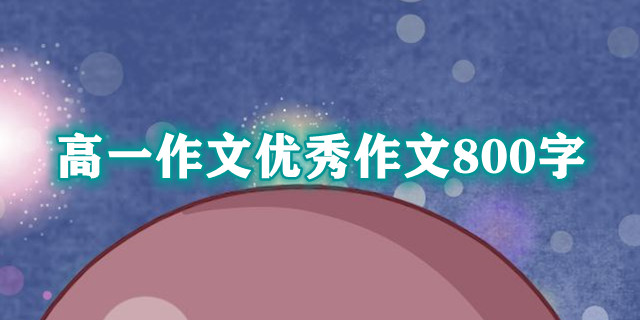爱,就这样简单 600字高中英语作文
3月8日那天黄昏,我去学校传达室给母亲打电话。
走到门口才发现,一向冷清的传达室里挤满了人,细心的住宿生们正兴奋地争先恐后地向自己的母亲问候。
我的电话卡要输入二十几个号码才能拨通,于是我颇识时务地坐在一旁的条凳上,静静地等候。
幸亏带了本白桦丛书《温馨四季》,可借以打发时间并掩饰自己的急切。我心不在焉地翻着书,“醉翁之意不在酒”地聆听这些定格在一个温馨时刻的祝福--
“喂,爸爸么?叫妈妈接电话好吗?”是一个忘记向爸爸也问好的粗心的男孩子。他的手在微微地抖动--他挺激动呀!一会儿,他涨红了脸,这样断断续续地说:“噢,妈妈……今天是您的节日……节日快乐……”也没再多说点儿,男孩抽出了电话卡。旁边有个女孩子不再矜持地偷偷发笑。我想,嘿,不善表达的男孩子!我在心里暗暗地思考呆会儿自己应该怎样口若悬河出一段落花流水般酣畅淋漓且感情十足的祝福,在必要的地方甚至应该押韵或者搭上English什么的……
可就在我这样想着的时候,几个女孩子互相嬉闹着说:“该你了!该你了!记得要温柔上点哦……”手握话筒的女孩不置可否地嗔怪地笑着:“哼,看我的,才比你温柔呢……”一会儿,电话那头有了回间。女孩马上收敛了笑声,停顿片刻之后竟然也是那么一点“欣喜”失措地说道:“噢,妈妈……节日快乐呀……”
旁边的人也都笑,我附和着同时也感悟着。原来,最真挚的祝福无须加以华丽的辞藻修饰--爱,其实就这样简单啊!
终于轮到我了,我忽然激动起来。熟悉的号码一阵飞拨,电话很快接通,那头传来了母亲温柔的声音:“喂……”
“嗨,妈妈……‘三八’节快乐……”
“嗯!哦,谢谢……”

关于如何戒除网瘾的英语作文400字就行
Prevention
If a person knows that he or she has difficulty with other forms of addictive behavior, they should be cautious in exploring the types of application that are used on the Internet。 In addition, it is important for people to engage in social activities outside the Internet。 Finally, mental health workers should investigate ways in which to participate in the implementation of new technology rather than waiting for its aftereffects。
Symptoms
One symptom of Internet addiction is excessive time devoted to Internet use。 A person might have difficulty cutting down on his or her online time even when they are threatened with poor grades or loss of a job。 There have been cases reported of college students failing courses because they would not take time off from Internet use to attend classes。 Other symptoms of addiction may include lack of sleep, fatigue, declining grades or poor job performance, apathy, and racing thoughts。 There may also be a decreased investment in social relationships and activities。 A person may lie about how much time was spent online or deny that they have a problem。 They may be irritable when offline, or angry toward anyone who questions their time on the Internet。
Treatments
Since Internet addiction disorder is a relatively new phenomenon, there is little research on the effectiveness of treatment procedures。 Some professionals advocate abstinence from the Internet。 Others argue that it may be unrealistic to have a person completely end all Internet use。 As society becomes more and more dependent on computers for business transactions, educational programs, entertainment, and access to information as well as interpersonal communication, it will be difficult for a computer-literate person to avoid using the Internet。 Learning how to use the Internet in moderation is often the main objective in therapy, in a way analogous to the way that people with eating disorders need to come to terms with food。 Many of the procedures that have been used to treat Internet addiction have been modeled after other addiction treatment programs and support groups。
If a person"s Internet addiction disorder has a biological dimension, then such medication as an antidepressant or anti-anxiety drug may help them with these aspects of the addiction。 Psychological interventions may include such approaches as changing the environment to alter associations that have been made with Internet use, or decrease the reinforcement received from excessive Internet use。 Psychological interventions may also help the person identify thoughts and feelings that trigger their use of the Internet。 Interpersonal interventions may include such approaches as social skills training or coaching in communication skills。 Family and couple therapy may be indicated if the user is turning to the Internet to escape from problems in these areas of life。
Relapsing into an addictive behavior is common for anyone dealing with addiction disorders。 Recognizing and preparing for relapse is often a part of the treatment process。 Identifying situations that would trigger excessive Internet use and generating ways to deal with these situations can greatly reduce the possibility of total relapse。
Causes and symptoms
Causes
No one knows what causes a person to be addicted to the Internet, but there are several factors that have been proposed as contributing to Internet addiction。 One theory concerns the mood-altering potential of behaviors related to process addictions。 Just as a person addicted to shopping may feel a "rush" or pleasurable change in mood from the series of actions related to a spending spree— checking one"s credit cards, driving to the mall, going into one"s favorite store, etc。— the person with an Internet addiction may feel a similar "rush" from booting up their computer and going to their favorite web sites。 In other words, some researchers think that there are chemical changes that occur in the body when someone is engaging in an addictive behavior。 Furthermore, from a biological standpoint, there may be a combination of genes that make a person more susceptible to addictive behaviors, just as researchers have located genes that affect a person"s susceptibility to alcohol。
In addition to having features of a process addiction, Internet use might be reinforced by pleasurable thoughts and feelings that occur while the person is using the Internet。 Although researchers in the field of addiction studies question the concept of an "addictive personality" as such, it is possible that someone who has one addiction may be prone to become addicted to other substances or activities, including Internet use。 People with such other mental disorders or symptoms as depression, feelings of isolation, stress, or anxiety, may "self-medicate" by using the Internet in the same way that some people use alcohol or drugs of abuse to self-medicate the symptoms of their mental disorder。
From a social or interpersonal standpoint, there may be familial factors prompting use of the Internet。 For
People who develop problems with their Internet use may start off using the Internet on a casual basis and then progress to using the technology in dysfunctional ways。 Use of the Internet may interfere with the person"s social life, school work, or job-related tasks at work。 Many of the treatments that have been used for Internet addiction have been modeled after other addiction treatment programs and support groups。 (Oleg Nikishin/Getty Images。 Reproduced by permission。)example, a person might "surf the Web" to escape family conflict。 Another possibility is that social or peer dynamics might prompt excessive Internet use。 Some affected persons may lack the social skills that would enable them to meet people in person rather than online。 Peer behavior might also encourage Internet use if one"s friends are using it。 Modeling may play a role—users can witness and experience how others engage in Internet use and then replicate that behavior。 The interactive aspects of the Internet, such as chat rooms, e-mail, and interactive games like Multi-User Dungeons and Dragons (MUDS), seem to be more likely to lead to Internet addiction than purely solitary web surfing。
One question that has not yet been answered concerning Internet addiction is whether it is a distinctive type of addiction or simply an instance of a new technology being used to support other addictions。 For example, there are gambling casinos on the Internet that could reinforce a person"s pre-existing gambling addiction。 Similarly, someone addicted to shopping could transfer their addiction from the local mall to online stores。 Persons addicted to certain forms of sexual behavior can visit pornography sites on the Internet or use chat rooms as a way to meet others who might be willing to participate in those forms of behavior。 Researchers may need to determine whether there is such a disorder as "pure" Internet addiction。
Demographics
In the past, people reported to have an Internet addiction disorder were stereotyped as young, introverted, socially awkward, computer-oriented males。 While this stereotype may have been true in the past, the availability of computers and the increased ease of access to the Internet are quickly challenging this notion。 As a result, problematic Internet use can be found in any age group, social class, racial or ethnic group, level of education and income, and gender。
Diagnosis
As previously noted, Internet addiction disorder has not yet been added as an official diagnosis to the DSM。 The following, however, is a set of criteria for Internet addiction that has been proposed by addiction researchers。 The criteria are based on the diagnostic standards for pathological gambling。
The patient must meet all of the following criteria:
He or she is preoccupied with the Internet (thinks about previous online activity or is anticipating the next online session)。
He or she needs to spend longer and longer periods of time online in order to feel satisfied。
He or she has made unsuccessful efforts to control, cut back, or stop Internet use。
He or she is restless, moody, depressed, or irritable when attempting to cut down or stop Internet use。
He or she repeatedly stays online longer than he or she originally intended。
The person must meet at least one of the following criteria:
He or she has jeopardized or risked the loss of a significant relationship, job, educational or career opportunity because of Internet use。
He or she has lied to family members, a therapist, or others to conceal the extent of involvement with the Internet。
He or she uses the Internet as a way of escaping from problems or of relieving an unpleasant mood (such as feelings of helplessness, guilt, anxiety, or depression)。
Prognosis
Although extensive studies have not yet been done, treatment appears to be effective in maintaining and changing the behavior of people drawn to excessive use of the Internet。 If the disorder is left untreated, the person may experience an increased amount of conflict in his or her relationships。 Excessive Internet use may jeopardize a person"s employment or academic standing。 In addition, such physical problems may develop as fatigue, carpal tunnel syndrome, back pain, and eyestrain。



